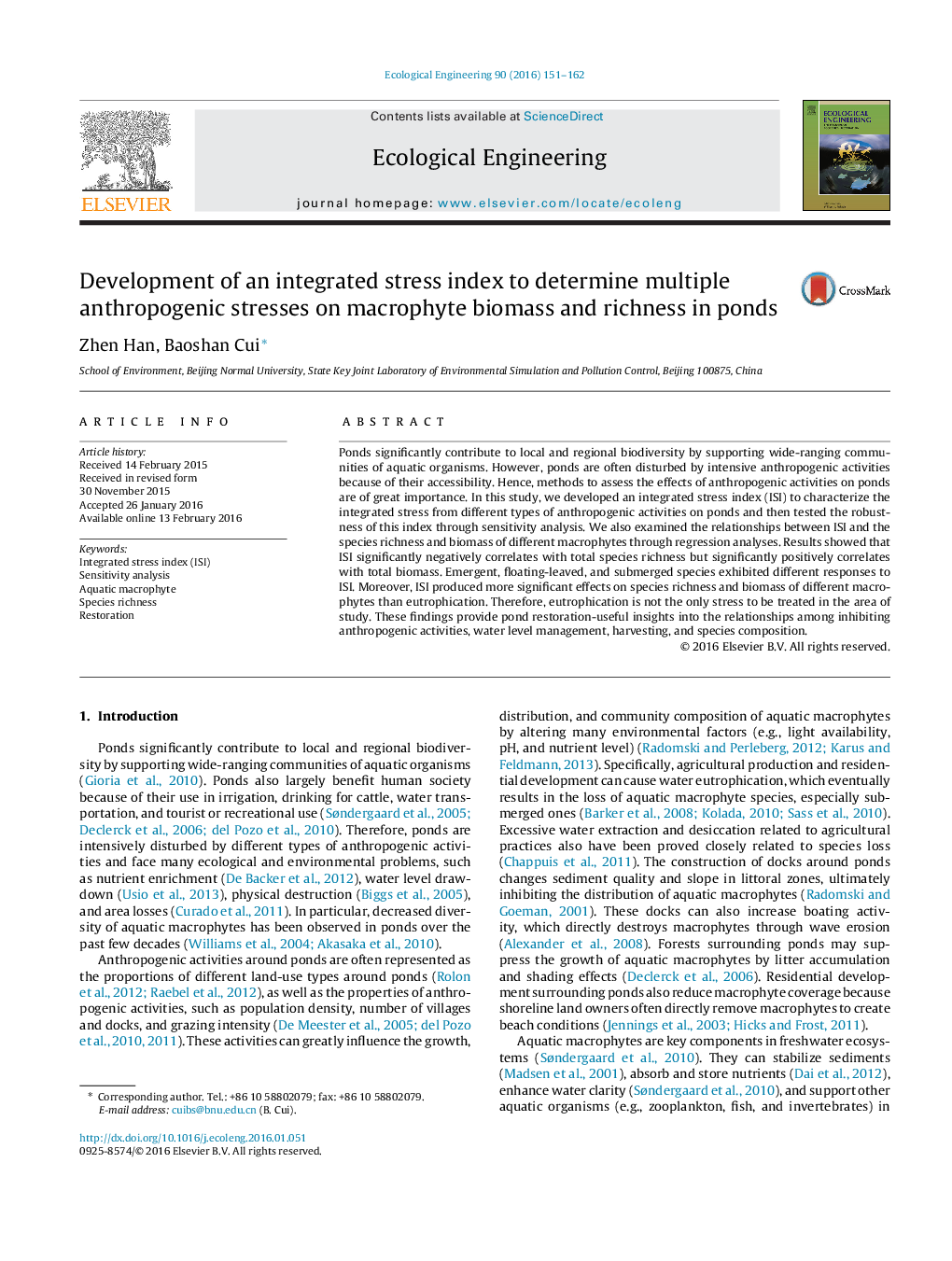| Article ID | Journal | Published Year | Pages | File Type |
|---|---|---|---|---|
| 4388658 | Ecological Engineering | 2016 | 12 Pages |
•An Integrated Stress Index (ISI) was developed in this study.•The robustness of ISI was proved by sensitivity analysis.•Different responses were found between three macrophyte growth forms and ISI.•Total species richness of macrophytes was significantly negatively related to ISI.•Eutrophication mitigation should not be the only restoration strategy for ponds.
Ponds significantly contribute to local and regional biodiversity by supporting wide-ranging communities of aquatic organisms. However, ponds are often disturbed by intensive anthropogenic activities because of their accessibility. Hence, methods to assess the effects of anthropogenic activities on ponds are of great importance. In this study, we developed an integrated stress index (ISI) to characterize the integrated stress from different types of anthropogenic activities on ponds and then tested the robustness of this index through sensitivity analysis. We also examined the relationships between ISI and the species richness and biomass of different macrophytes through regression analyses. Results showed that ISI significantly negatively correlates with total species richness but significantly positively correlates with total biomass. Emergent, floating-leaved, and submerged species exhibited different responses to ISI. Moreover, ISI produced more significant effects on species richness and biomass of different macrophytes than eutrophication. Therefore, eutrophication is not the only stress to be treated in the area of study. These findings provide pond restoration-useful insights into the relationships among inhibiting anthropogenic activities, water level management, harvesting, and species composition.
